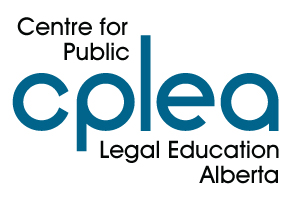This information is intended as a general guide to some of the regulations under the Provincial Parks Act and a variety of other provincial and federal legislation that apply to recreational activities in Alberta's provincial parks and recreation areas. Topics covered include: boating, camping, hunting and fishing, permits, firearms, to name just a few.
You can learn about the laws and policies which protect the environment and animals.
The resources on this page were hand-picked by the Centre for Public Legal Education Alberta's staff as a good place to start.
CPLEA Suggested Resources
Not sure where to begin finding answers to your questions. Get started with our suggested resources. See additional resources below for more information.
Alberta Resources
The Alberta Society for the Prevention of Cruelty to Animals (Alberta SPCA) is a provincially-incorporated nonprofit organization dedicated to the welfare of animals. They encourage the humane treatment of animals through enforcement of animal protection legislation and through education programs throughout Alberta. They will investigate reports from the general public of animal cruelty or neglect.
Cannabis use at Alberta Parks sites aligns with the Alberta Cannabis Framework. The page provides information on the rules that apply in Alberta parks regarding the use of cannabis.
Protecting Alberta’s environment and natural resources includes preserving the quality of our water, air, natural lands and wildlife. This Alberta government site provides links and information on the following topics of interest to Albertans:
- Air and air quality
- Climate change
- Environmental monitoring and compliance
- Fish and wildlife
- Forests and wildfire
- Land
- Minerals, hydrocarbons and renewable energy
- Waste management and reduction
- Water
The Environmental Law Centre (Alberta) Society ("ELC") is a registered charitable organization incorporated in Alberta in 1982 to provide Albertans with an objective source of information about environmental and natural resources law. The ELC website includes fact sheets, downloadable publications and a frequently asked questions section. The ELC library is accessible to the public; the catalogue can be accessed on their website. As well, any person can contact the ELC and receive information on environmental law.
This primer is a tool for landowners who find themselves with inactive, suspended, abandoned or orphaned wells on their property. While it focuses on wells, much of the content applies to other oil and gas infrastructure on your property, including pipelines and control sheds.This primer was prepared by the Pembina Institute.
Canada/Federal
CELA is a specialty legal clinic within the Ontario-wide network of clinics. CELA works to protect human health and our environment by seeking justice for those harmed by pollution and by working to change policies to prevent such problems in the first place. As a Legal Aid Clinic their top priority is to represent low income individuals and communities and to speak out for those with less influence and who receive less of a say in decision-making.
Environment Canada is responsible for protecting the environment, conserving the country's natural heritage, and providing weather and meteorological information. The website provides information about programs and services related to air, water, nature, climate change, pollution and waste, sustainable development, environmental enforcement, environmental emergencies, science and technology and weather. One section deals with the numerous acts, regulations and agreements related to their mandate.
The Native Women’s Association of Canada (NWAC) is a National Indigenous Organization representing the political voice of Indigenous women, girls and gender diverse people in Canada, inclusive of First Nations on and off reserve, status and non-status, disenfranchised, Métis and Inuit. NWAC works on a variety of issues such as employment, labour and business, health, violence prevention and safety, justice and human rights, environment, early learning childcare and international affairs.
A project of the Canadian Institute for Environmental Law and Policy, the purpose of this guide is to harness the citizens’ ability to prevent pollution. Citizens can prevent pollution through individual actions, consumer behaviour, and by applying pressure on industrial and commercial operations, and institutions (e.g., our governments) to practice the principles of pollution prevention. (PDF – 48 pages, 2005)








Follow CPLEA